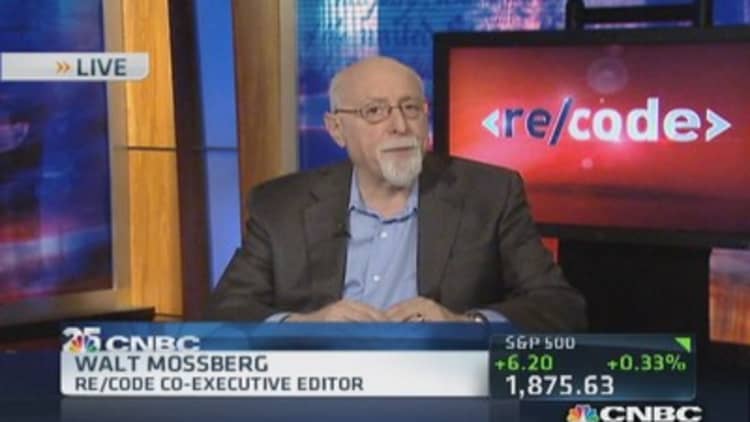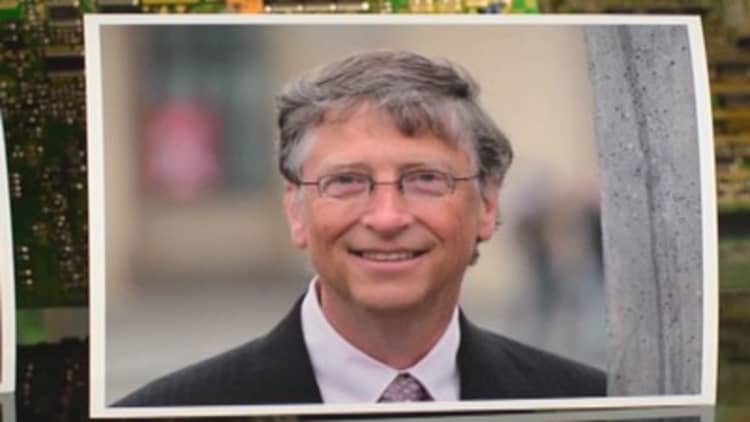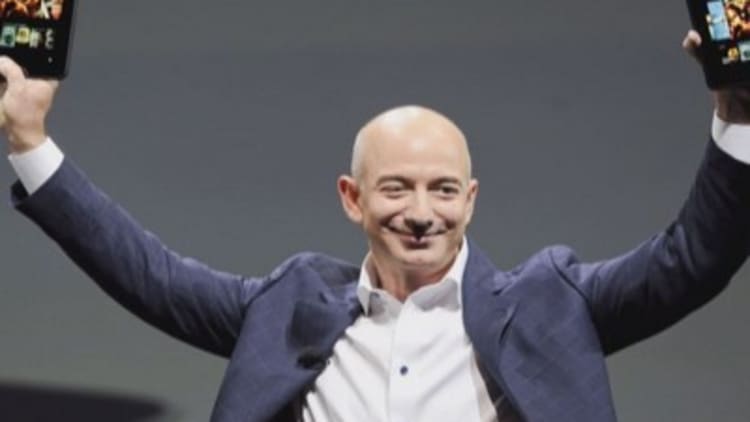Over the last quarter century, no industry has seen more dramatic change—and has had a bigger impact on consumers and businesses—than technology. When you observe the nature of tech products and their role in our lives in 1989 and compare it to their design and impact today, it would seem more likely that 250 years has lapsed.
To say the change has been dramatic is an understatement. Personal digital technology was a nascent infant a quarter-century ago—a niche techie add-on to the lives of people and the operations of companies. Today, it stands at the center of most people's lives and most companies' businesses. Back then, you could still do pretty well without a computer. Today you'd never think of being without a smartphone—a far more potent computer than the desktop version of the late 1980s. And we're entering the era of even more ubiquitous computing, with sensors on our bodies, in our homes and offices and all over our cities.

The effects have been profound, both good and bad. Nearly everyone you know, or need to know, is a few clicks away, whether you're on a PC or Mac, a smartphone or tablet. The world's news, information and entertainment are at our disposal—on demand, in text, through audio and video. You can be a publisher or broadcaster or trade stocks all day, without a big investment or a human intermediary. Devices and sensors can log your activities autonomously.
But the demands of being constantly connected, even for digital natives who never knew any other environment, are relentless, often curbing human contact and time for thought and reflection. It can seem like a million distracting notifications and communications are bombarding you, day and night. And when you should be sleeping or relaxing with your family, work is always a click or a swipe away. You are always in contact with your office—in multiple ways, on multiple devices. Even at 30,000 feet.
Looking back . . .
It's startling to consider how much has changed in just a quarter century.
When CNBC launched 25 years ago, the personal computer was about 12 years old, having entered the mainstream in 1977 with models like the Apple II. IBM's first PC, running Microsoft's text-based operating system, DOS, had arrived in 1981. The Macintosh, which commercialized the graphical user interface, debuted in 1984, and Windows came along the following year.
According to the Census Bureau, only 15 percent of U.S. homes had a personal computer in 1989, and none was connected to the Internet. By 2011, the bureau reports, 75 percent of U.S. homes had computers and more than 70 percent were surfing the Internet.

Out of the box, an average Microsoft-based computer in 1989 couldn't play sound (beyond beeps), had no built-in modem or connection to the outside world and couldn't play CDs or decent video. It was a limited, sluggish standalone device.
Even if you added a dial-up modem, they ran at pathetically slow speeds and could mainly connect only to walled-garden services like CompuServe. There was no widespread broadband or Wi-Fi in 1989, no fast cellular data networks.
The World Wide Web was conceived around the time of CNBC's birth but didn't begin to take off until five years later, in 1994, with the release of the first successful mass-market browser: Netscape.
Email had yet to catch on in the mass consumer market, let alone things like texting, instant messaging, or social networking.
None of the major online tools people rely upon without a second thought today was available when CNBC launched. The first truly comprehensive and fast search engine, Google, showed up in 1998. The most successful social network, Facebook, in 2004. The dominant micro-blogging service, Twitter, in 2006.
E-commerce didn't take off until the appearance of Amazon.com and eBay in 1995. And dynamic, cloud-based digital mapping, which is second nature to people today, didn't really gain traction until the debut of Google Maps in 2005.
When CNBC signed on, the cellphone was still a sort of science fair experiment, still mainly meant for use in cars. Hand-held computers, or PDAs, had failed again and again. The first decent one, the Palm Pilot, didn't appear until 1996, but it couldn't make phone calls or connect to online services.

The BlackBerry, originally a glorified pager, showed up a decade after CNBC did. The first true modern smartphone, Apple's iPhone, launched in 2007, and its app store a year later. Google's Android debuted in 2008.
The Amazon Kindle, the first successful e-reader, appeared in 2007, and the iPad, the first widely adopted tablet, only in 2010.
In 1989, digital cameras were crude monochrome devices that cost way too much. Digital music players and DVRs didn't exist. Watching television networks like CNBC required, well, a television, and watching in real time.
Whew. So much has happened in so little time, and society is still digesting it all.
Today, the personal computer has been dethroned as the primary digital device by the smartphone, even in countries that had large PC penetration. Consumers are performing almost every sort of digital task, from reading articles like this, to watching television, to playing games and even tinkering with spreadsheets, on phones and tablets.
The need for techie intermediaries, including corporate IT departments, to help people use all these things, while nowhere near gone, is much reduced.
And the makers of those mobile devices, and of the apps and cloud-based services that make them valuable, are racing to drive down their prices to bring them within reach of billions more people in poorer countries.
So what's next?
Well, we are beginning to see glasses that run apps, wrist wear that monitors your fitness and your communications, and drones and robots that individuals can own. These are still infant technologies, with lots of runway.
More broadly, finding a way to intelligently and easily monitor the physical things around you remains a challenge. This business, often called "the Internet of Things," is well underway, but still too much of a kludge.
The biggest screen of all, the television, remains low-hanging fruit. So-called "smart TVs" still aren't very smart. And a no-brainer TV that needs none of the myriad of boxes sold today for streaming content, yet has a unified interface with standard programming, still hasn't caught fire.
There are huge business opportunities in things like foldable screens; radically revised batteries that hardly ever need recharging; and 3-D printing for consumers that is simpler, and yet more practical.
Health is another big opportunity. In 2014, the tens of millions of diabetics in the U.S. shouldn't have to draw blood to check their glucose levels, but they do. Noninvasive blood and tissue analysis, easily used by normal patients, could work with other diseases as well, saving both lives and money.
Finally, we have to get a handle on security and privacy. Passwords don't work, and reliable biometrics everyone can use are just starting.
I don't know what else will be common when CNBC is 50, but I am confident that the ingenuity of designers, dreamers and engineers will make 2039 as unrecognizable to its audience then as 1989 seems today.
Walt Mossberg is the co-executive editor of the tech website Re/code, and co-executive producer of the country's most prestigious technology event, the Code Conference. For 22 years, he wrote the Personal Technology column in The Wall Street Journal, and was co-founder of All Things Digital. NBC, the parent company of CNBC, is a minority investor in Revere Digital, the parent company of Re/code, and is an operating partner of Re/code.






